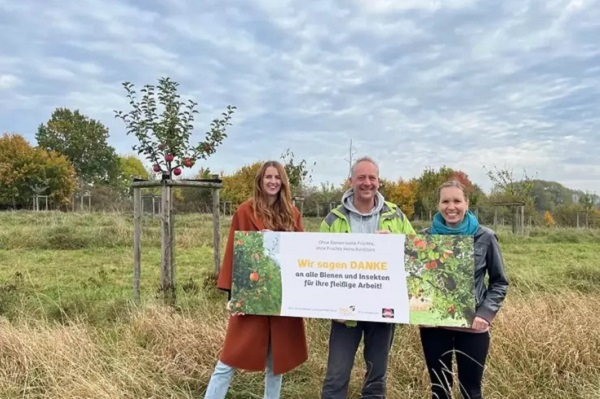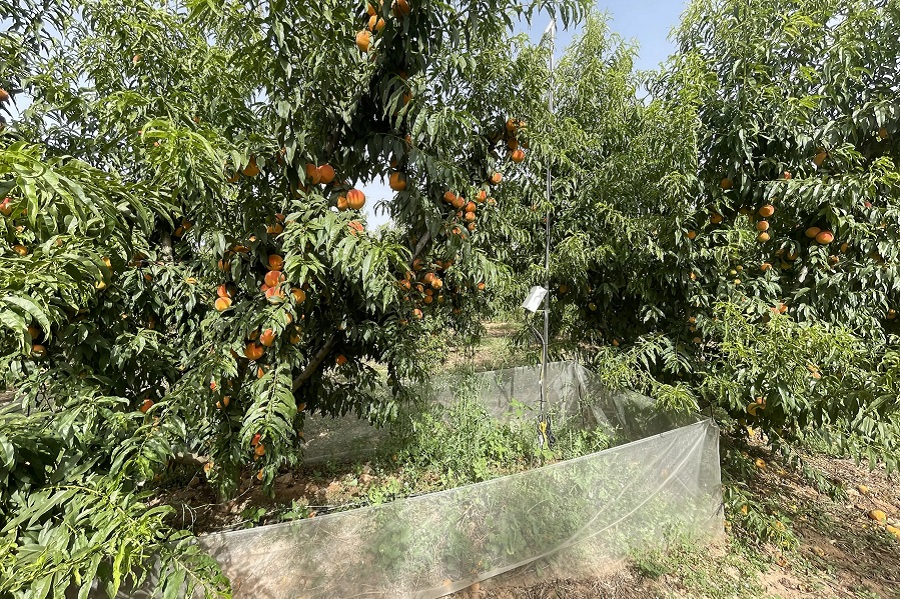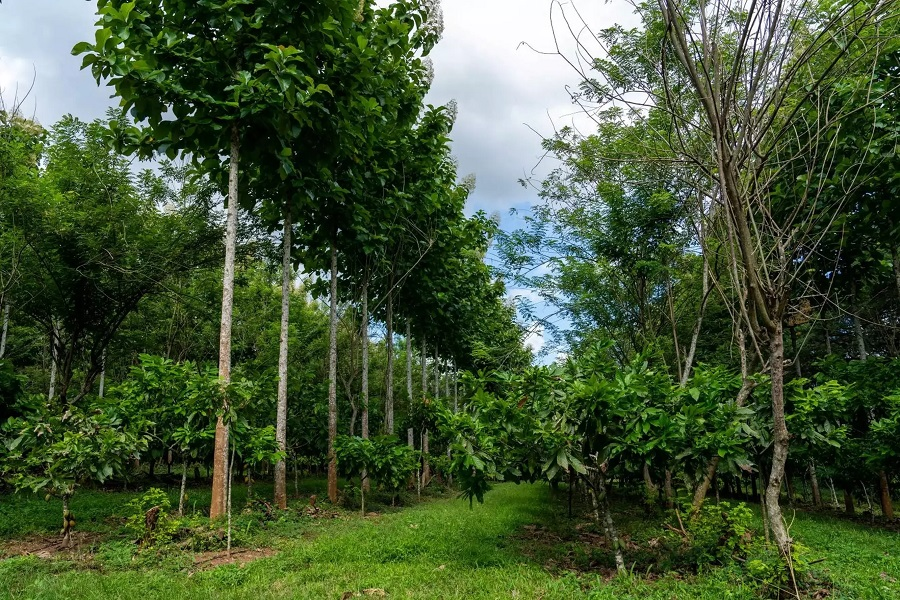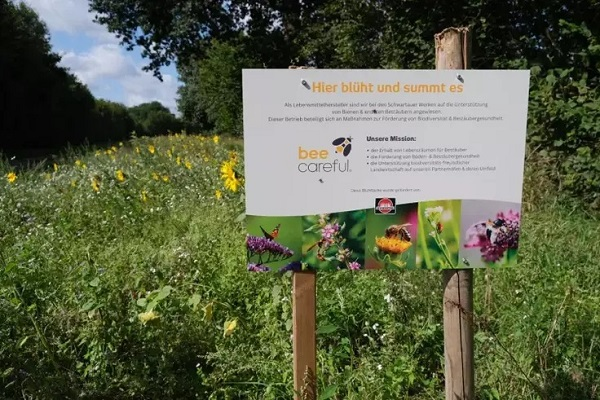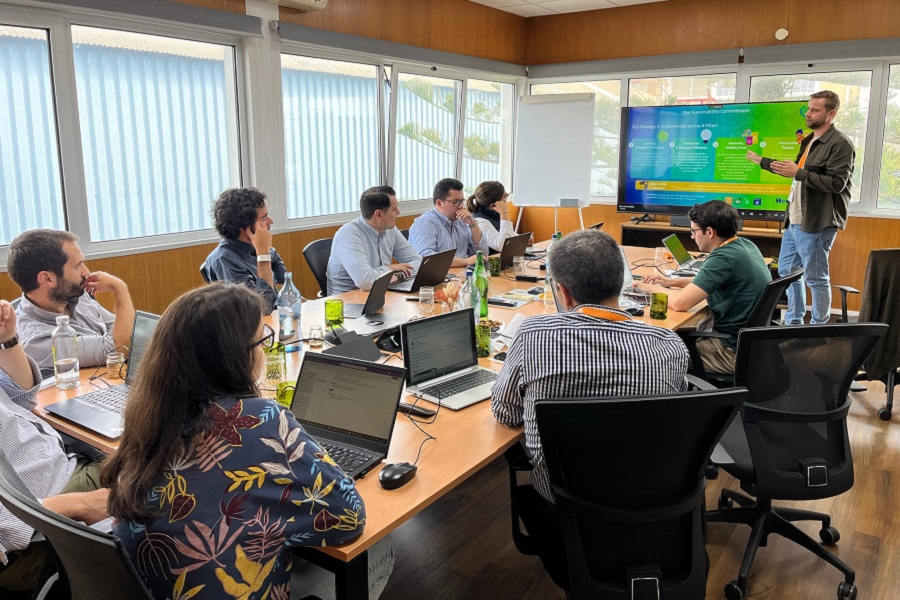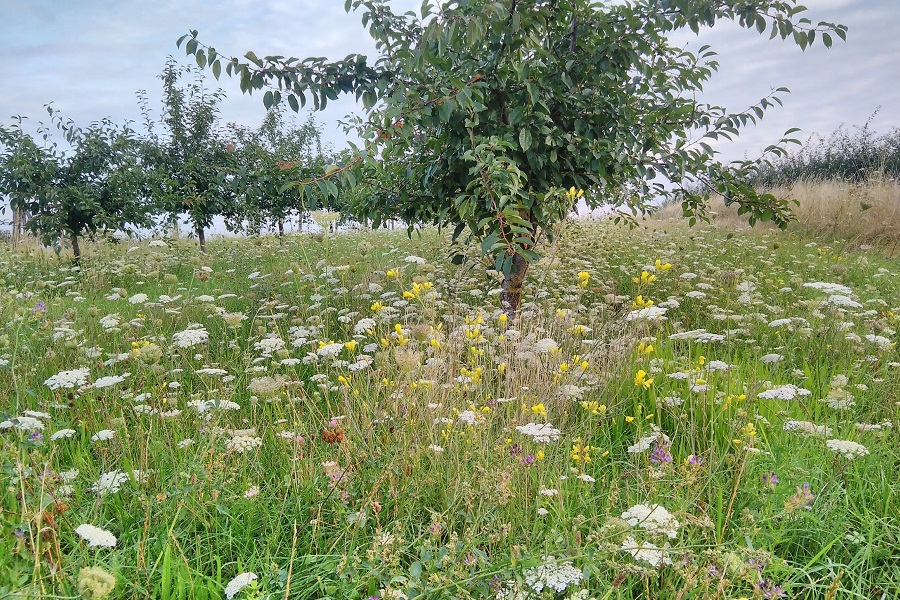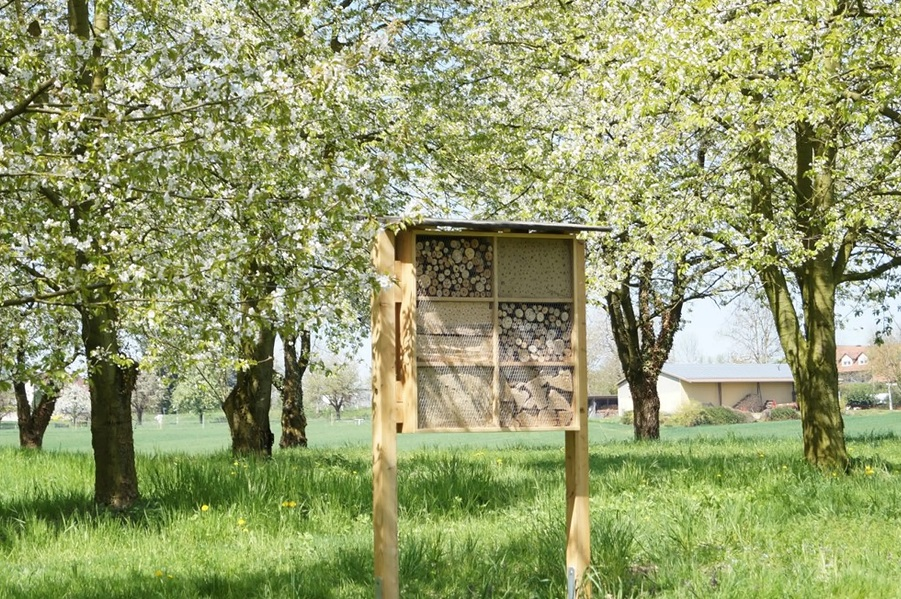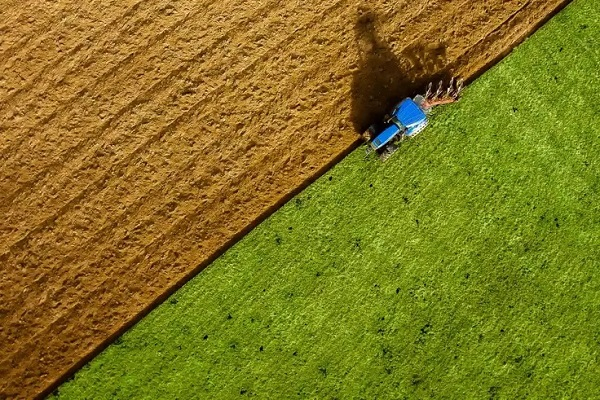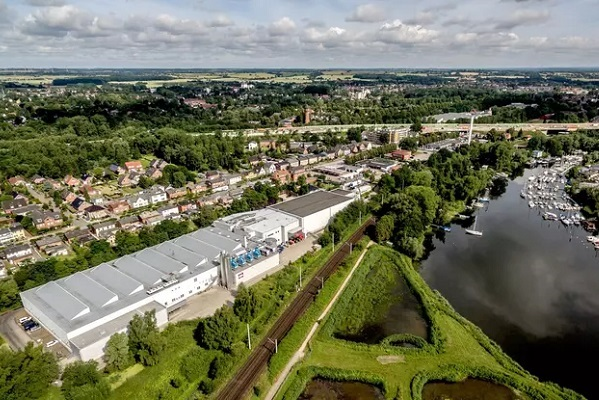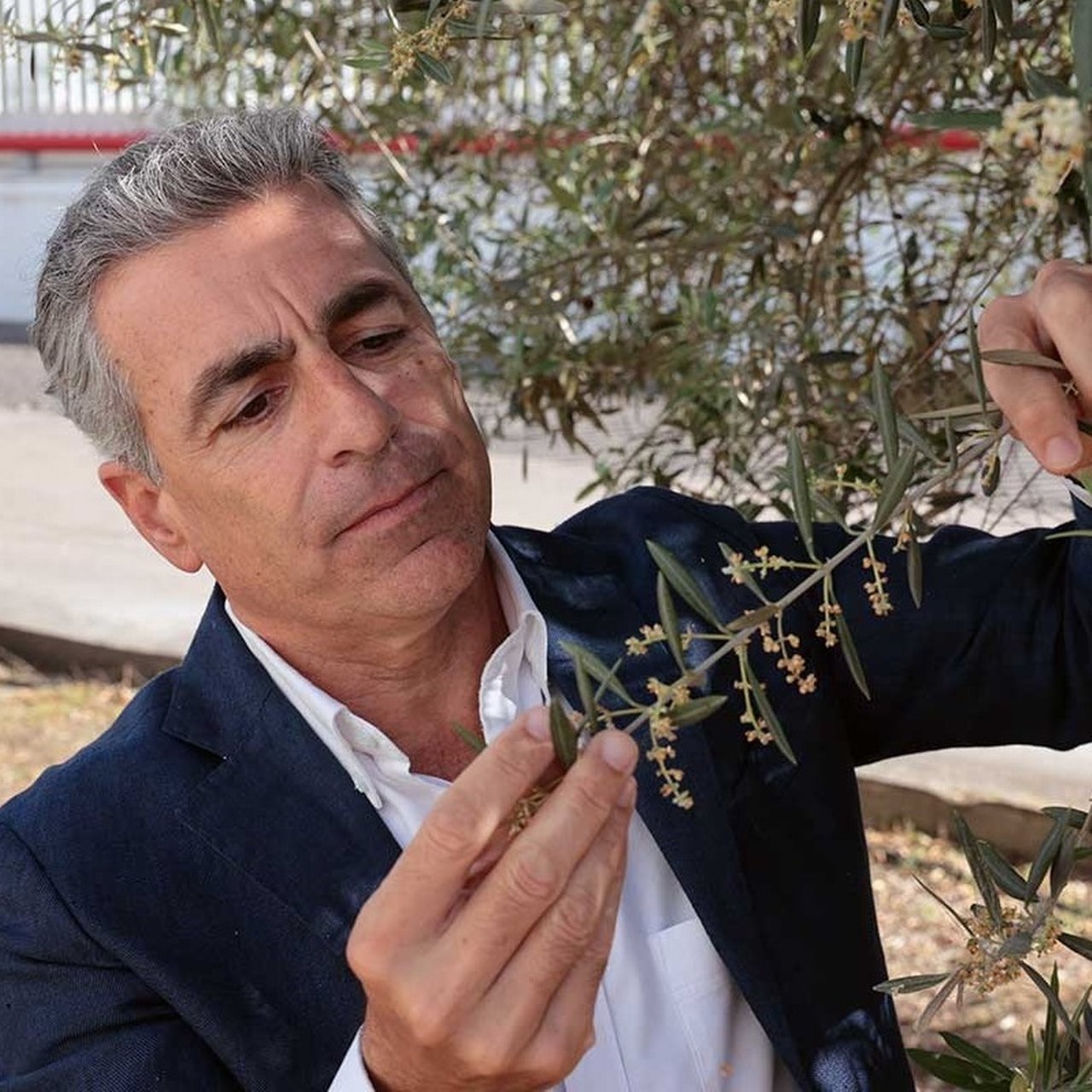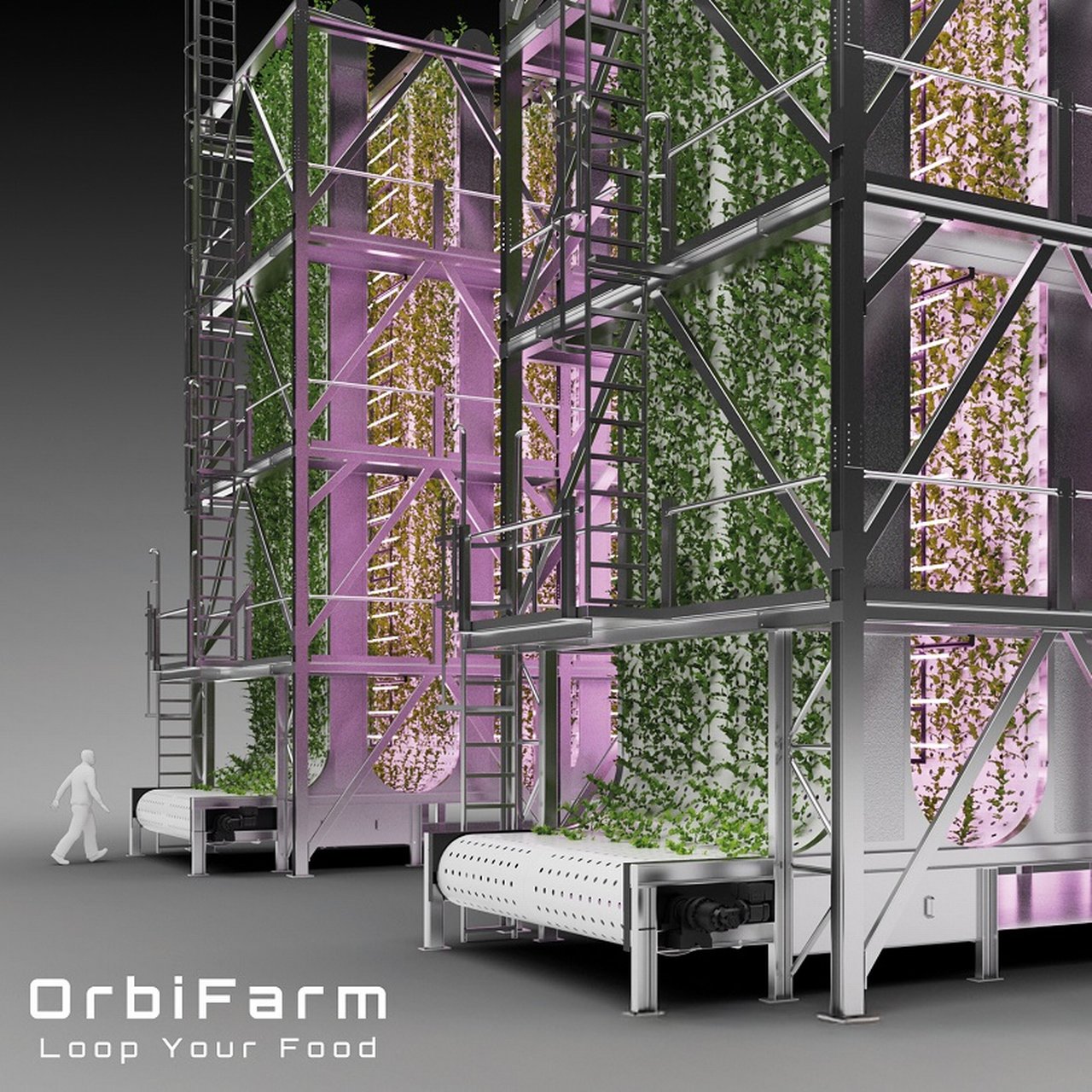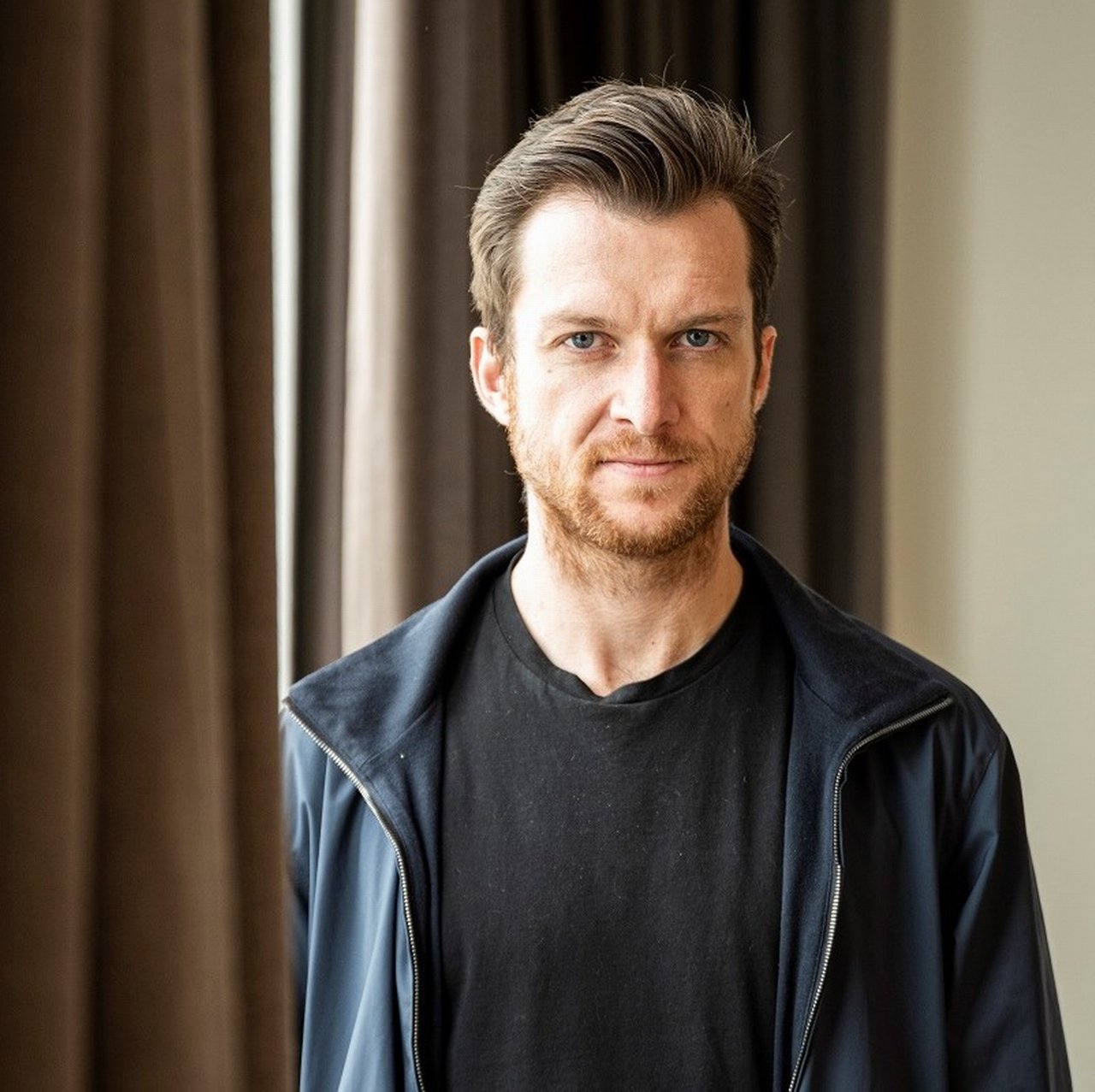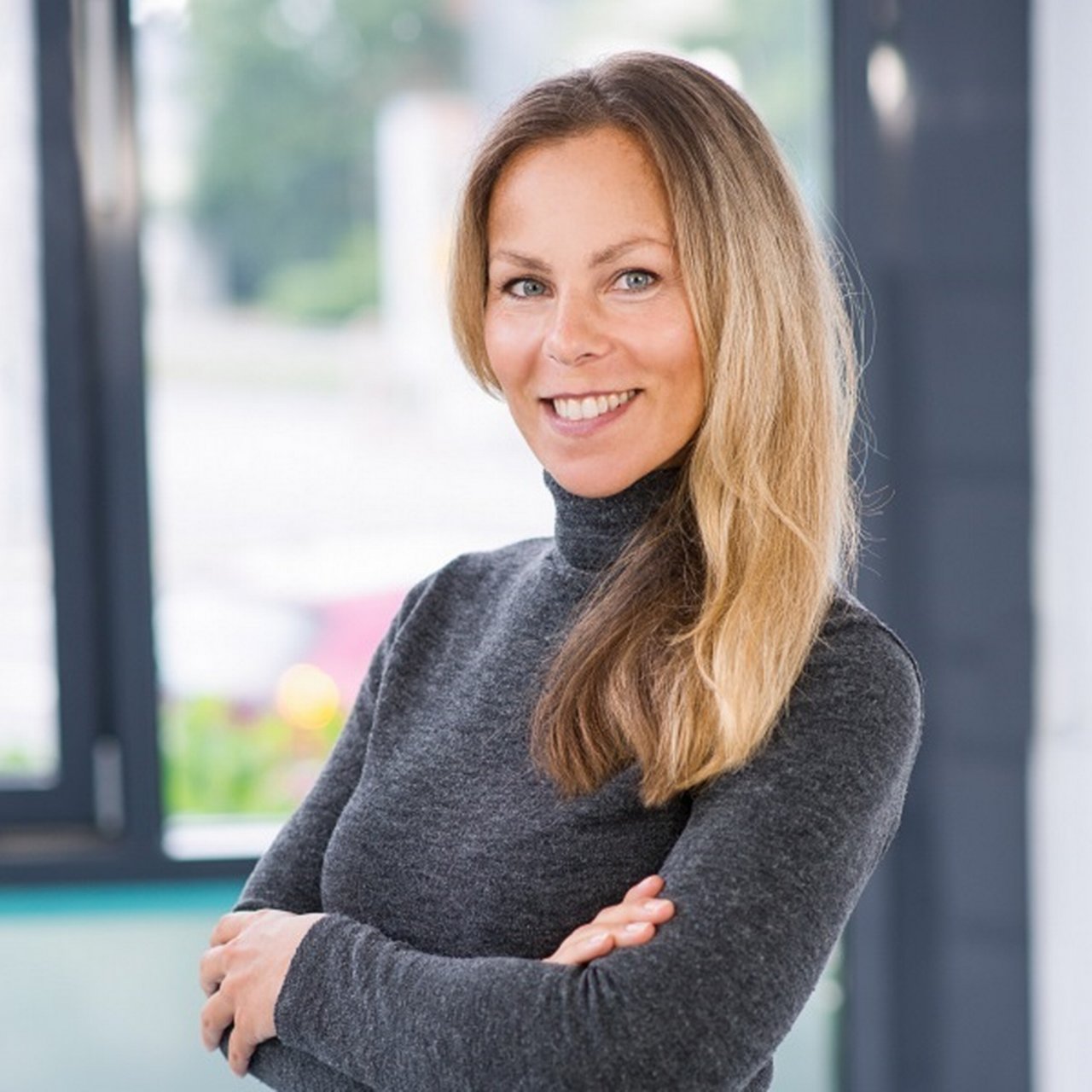
Preserving nature: how Schwartauer Werke is leading the way with regenerative agriculture
Depleted soils, excessive fertiliser use, and a dramatic decline in pollinators – not exactly ideal conditions for a company that has stood for fruity flavour for over 125 years. Schwartauer Werke, producer of jams and fruit spreads, recognised the challenge early on – and took action.
Picture a quiet morning in a fruit orchard. A sensor chirps between the rows of trees, and the farm manager’s app lights up: no irrigation needed today; soil moisture levels are sufficient. That saves water and the harvest stays the same. It’s one of many small decisions that, together, make a big impact.
Instead of waiting for climate change and biodiversity loss to disrupt production, this medium-sized company from northern Germany began shifting toward sustainable practices back in 2014. In close collaboration with partner farms, Schwartauer Werke has been testing and gradually implementing new methods – from precision irrigation to soil-friendly cultivation techniques.
Being family-owned helps: decisions are fast, pilot projects quickly become part of daily operations. Regeneration of soil and nature isn’t treated as an add-on; it’s embedded in the business model, with a focus on nutrients, water and biodiversity.
In this interview, we are talking to Julia Schäfer, Sustainability Manager at Schwartauer Werke. She explains how values drive tangible action – and why early intervention pays off.
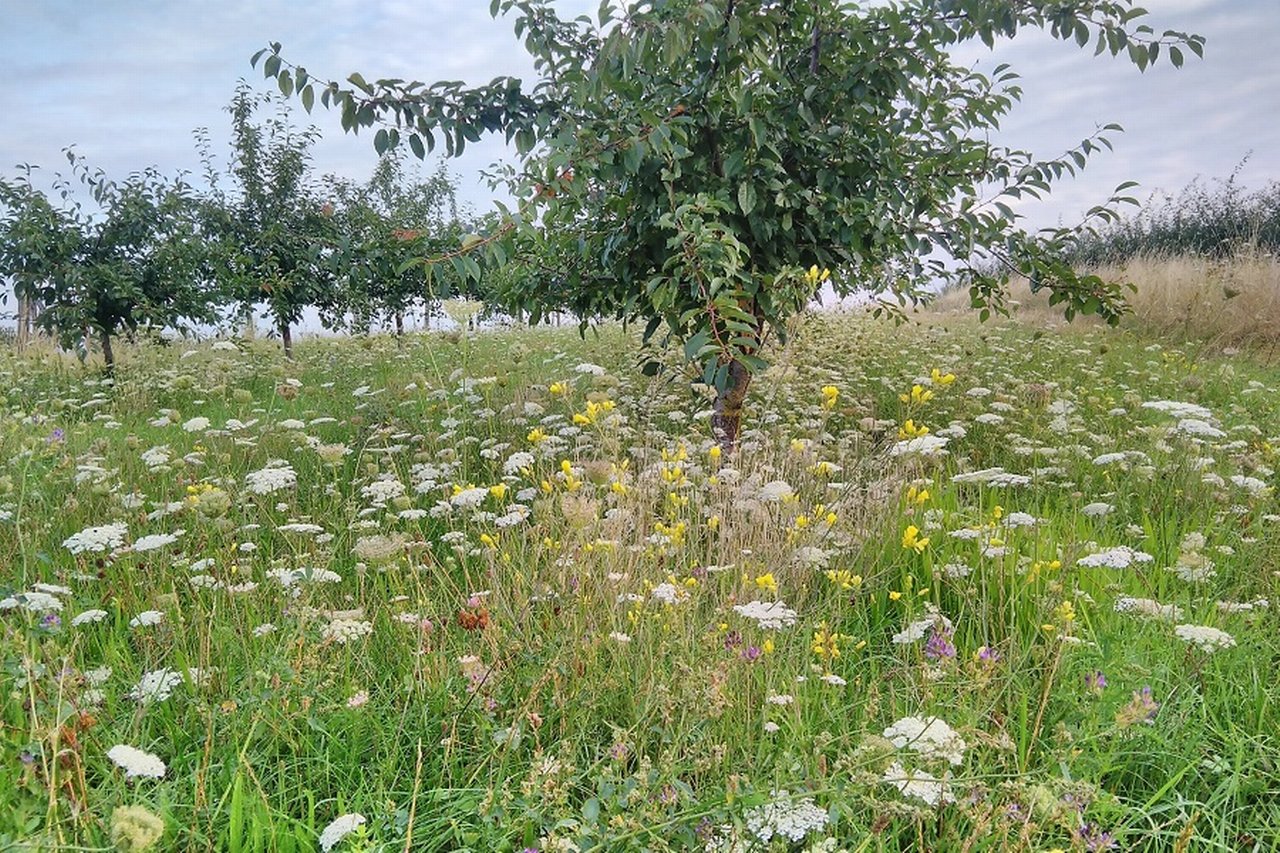
Julia Schäfer, why did Schwartauer Werke commit so early to regenerative, circular and biodiversity-enhancing agriculture?
Our early decision was rooted in a clear understanding: as a food producer, we depend directly on healthy ecosystems. When we launched our bee protection initiative “bee careful” over ten years ago, we began integrating the link between biodiversity, soil fertility and product quality into our corporate strategy. We also realised that, as a medium-sized company, we could respond faster and more flexibly than large corporations – and we wanted to seize that opportunity. Even then, it was clear: only by treating nature as a partner can we ensure long-term quality and supply.
We aim to give more back to nature than we take.
Was there a defining moment when this path became clear?
Yes – in 2014, when we launched “bee careful”. It wasn’t just symbolic; it was a strategic decision supported by leadership and experts from agriculture and research. Since then, sustainability and biodiversity have been integral to our strategy. Our guiding principle: align environmental protection, product quality and economic viability. We aim to give more back to nature than we take.
Why is Schwartauer Werke ahead of many other companies today?
We don’t treat sustainability as a marketing tool or short-term trend – it’s right at the heart of how we create value. As a family-owned business, strategic foresight is a key competitive advantage. We think holistically – economically, ecologically and socially.
Our sustainability strategy rests on four pillars: responsible sourcing, efficient and environmentally friendly production, better product design, and community engagement. Our employees feel this responsibility – and the joy of innovation. That’s what gives us the courage to keep exploring new paths.
Efficient water use is a major issue in agriculture. You’ve launched a groundbreaking project in Spain. Can productivity be maintained while reducing water usage?
Our water stewardship project in Spanish apricot farming was initially met with scepticism. It uses real-time sensors and app-based controls. Of course, we had to make a business case and prove that the investment would lead to measurable savings. And we had to show farmers that technology and traditional farming can go hand in hand. That’s why we partnered closely with the Polytechnic University of Cartagena and local farmers. The result was a drop in water use of 33 percent while productivity stayed the same – a compelling argument that won support both inside and outside the company.
We want to show that biodiversity isn’t a cost trap – it’s an investment. What matters most: just start.
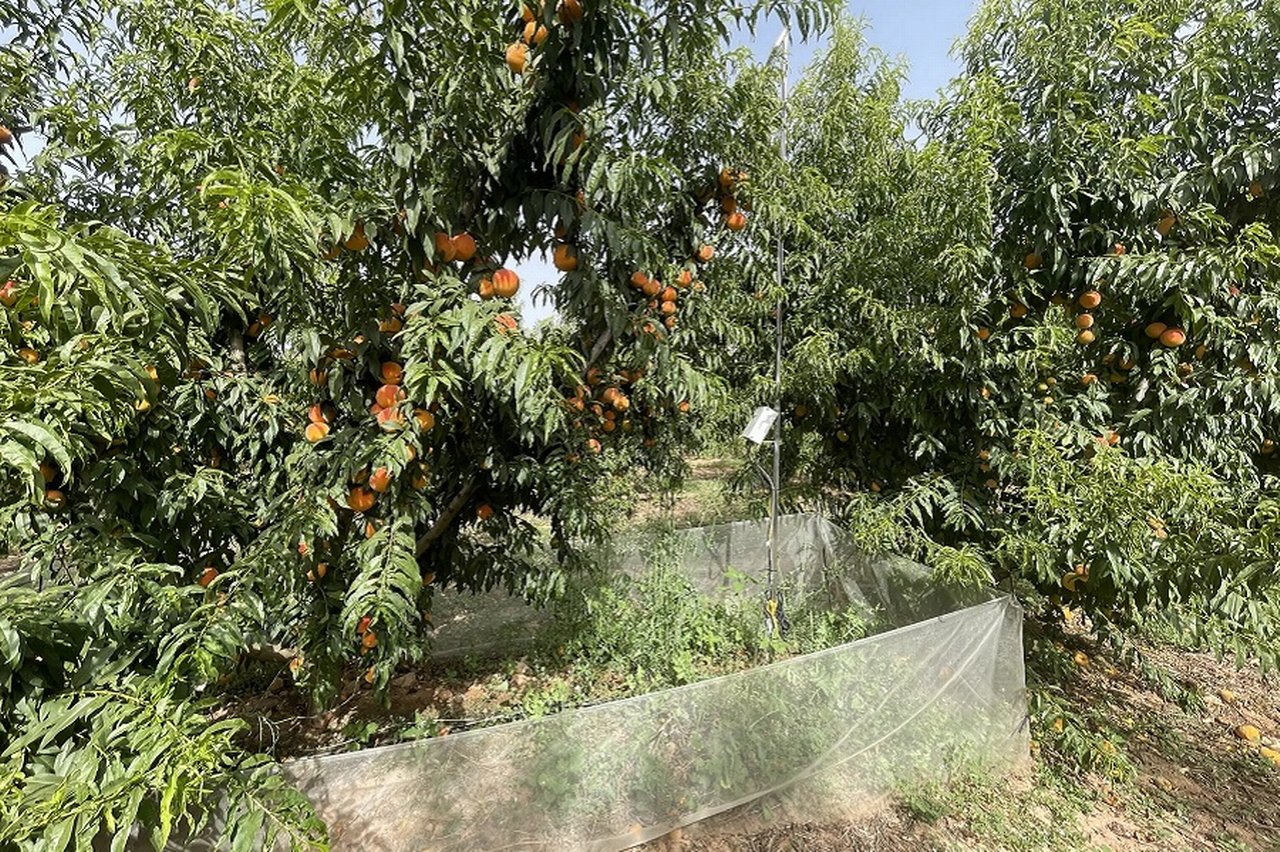
What was the biggest challenge in implementing regenerative agriculture – and how did you overcome it?
Convincing farmers to adopt new methods like flowering strips, cover crops or biochar was the toughest part. We succeeded by working with strong partners like the Global Nature Fund, measuring success together, and clearly communicating that biodiversity also means economic stability – through healthier soils and greater resilience to extreme weather.
Minimising and recycling waste
Schwartauer Werke takes environmental protection seriously – not just by using renewable energy, but also by actively reducing waste in its production processes. The goal: to eliminate waste entirely in this area, following the principle of “Zero Waste”.
Can you give an example of what you’re doing for soil health?
One exciting area is the use of biochar to build humus and store carbon in the long term. Biochar, produced from decomposed biomass, improves soil structure, enhances water retention and supports microbial life – all key aspects of regenerative agriculture. We’re researching this and complementing it with field trials, scientific support and farmer training – it’s a vital building block.
Less waste, less carbon: oat farming with biochar
In 2024, Schwartauer Werke launched a pilot project to use biochar in oat cultivation. Biochar is a carbon-rich substance derived from decomposed biomass. It improves soil quality, enhances water retention, and most importantly, helps bind carbon emissions in the soil.
In the first year of the project, the use of biochar led to 35.5 tons of carbon being permanently stored in the soil, effectively offsetting the emissions from 64.5 tons of oats. The project is supported by scientific research and certified by external experts.
Since spring 2025, two additional farms have joined this innovative approach to carbon reduction, tripling the volume of oats grown with reduced emissions.
How do you measure success – and how does the company benefit?
We’ve defined clear indicators: pollinator-friendly areas, flowering cover crops, mulched fields, nesting sites. In 2024, we created 111 hectares of blooming habitats, 130 hectares of cover crops, 172 hectares of mulched land and 159 nesting sites. Our partner farms are on board, and supply chains have become more resilient. Recognition like the German government’s CSR Award in 2025 motivates our team and confirms we’re on the right track.
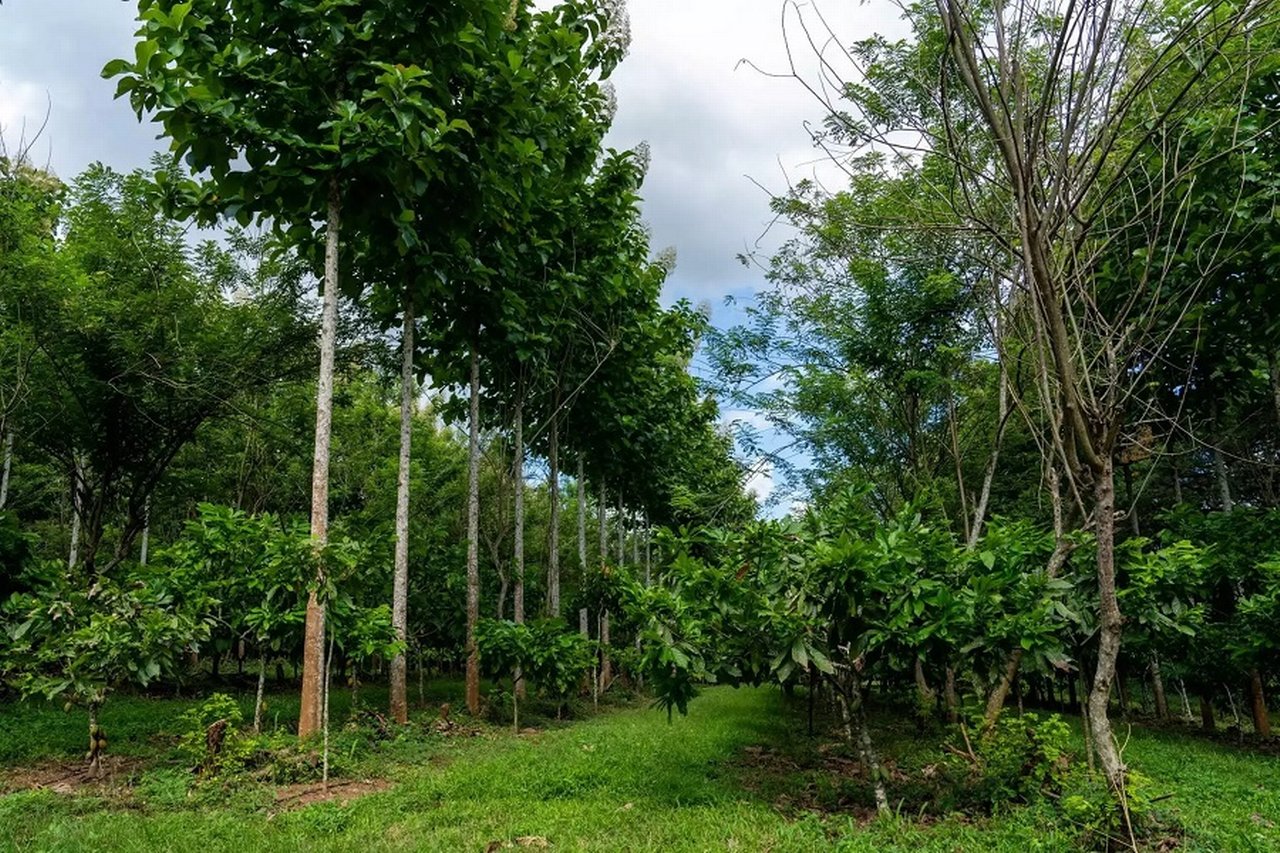
Agroforestry in cocoa cultivation in Côte d’Ivoire
Through its agroforestry project in cocoa farming, Schwartauer Werke is creating valuable habitats for flora and fauna. Agroforestry combines the cultivation of cocoa trees with other crops and tree species. This approach promotes biodiversity and soil health, improves the microclimate within plantations, and can also help sequester greenhouse gases in the soil.
As part of the project, the company has supported the development of 170 hectares of cocoa plantations using agroforestry systems in Côte d’Ivoire. These measures not only benefit the environment but also strengthen local communities by creating economic opportunities and advancing social initiatives.
The project goes beyond the requirements of Rainforest Alliance certification for chocolate products and contributes to responsible sourcing.
You’re part of the Hero Group, active in over 30 countries. Are your initiatives being adopted by partner companies?
Absolutely. We share our pilot projects, data, and success models across the group. This allows us to apply programmes like water stewardship, agroforestry and biochar in other regions and supply chains.
Your company has achieved a lot. Do you see yourselves as a role model for the industry?
Definitely. We want to show that biodiversity isn’t a cost trap – it’s an investment. And small to medium-sized companies can absolutely lead this transformation. Tools like our biodiversity catalogue and programmes like water stewardship and agroforestry are meant to inspire others. What matters most: just start.
Member of the Sustainable Agriculture Initiative (SAI)
Through its parent company, the Hero Group, Schwartauer Werke is a member of the Sustainable Agriculture Initiative Platform. The SAI Platform is the leading global initiative promoting regenerative agricultural practices and brings together a network of the world’s largest food, beverage and agriculture companies.
Are you seeing momentum from the farming community?
Yes! Farmers experience the benefits directly: better soil, more stable yields, greater appreciation. We focus on small, family-run farms – something for which we were singled out when we won the CSR Award. NGOs like the Global Nature Fund and regional groups like the Bodensee Foundation are increasingly involved in initiatives like orchard meadow projects.
Looking ahead five years – what would be the best proof that you made the right decisions in 2025?
If all our suppliers are practicing regenerative agriculture, if biodiversity and sensor standards are established across the Hero Group, and if our environmental and economic results are even stronger than today. Most of all, I’d love to see healthy, diverse ecosystems full of blossoms, insects and fertile soil. That would show our bold decisions were exactly right.
This page was published in October 2025.
Schwartauer Werke and Deutsche Bank
Schwartauer Werke and Deutsche Bank have a long-standing business relationship that spans all levels – not only with the headquarters in Bad Schwartau, but also with the parent company Hero AG in Switzerland, its subsidiaries in other countries, and the ownership group.
Together, they have successfully implemented a number of strategic projects to support the development of the Hero Group. Beyond a shared enthusiasm for Schwartauer’s and Hero’s products, it is the decades-long, trusting relationship that has been key to their success.
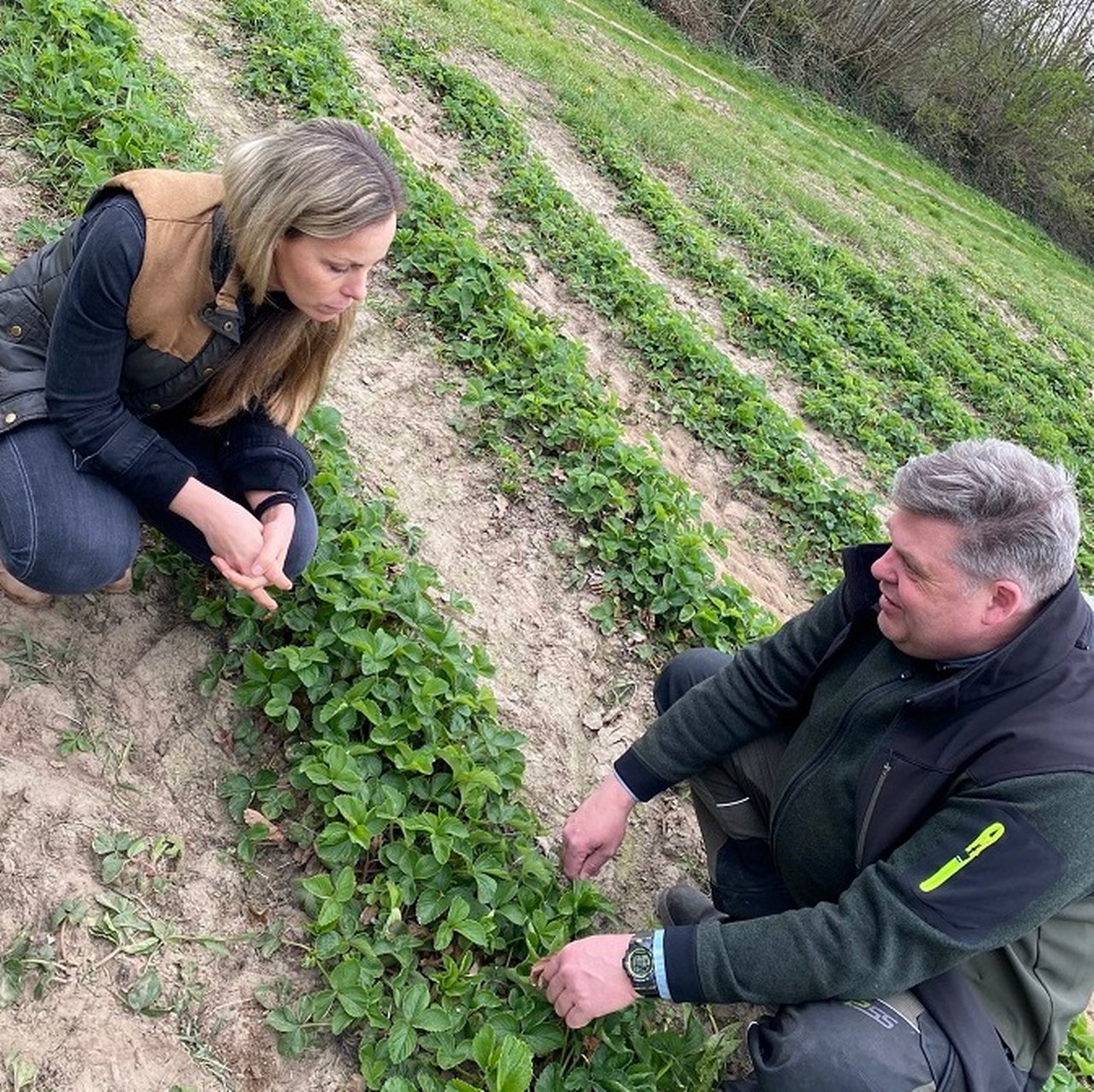
About Julia Schäfer
Julia Schäfer holds a degree in business administration with additional qualifications in strategic sustainability management and corporate environmental management. She joined Schwartauer Werke in 2022 as Sustainability Manager, where she built the company’s sustainability management structure and defined priorities, goals and initiatives. She also developed a group-wide biodiversity strategy.
Her responsibilities include sustainability reporting, ESG ratings and external communications with business partners. Julia brings 15 years of experience in marketing and product management within the FMCG industry, with a focus on food and beverages.
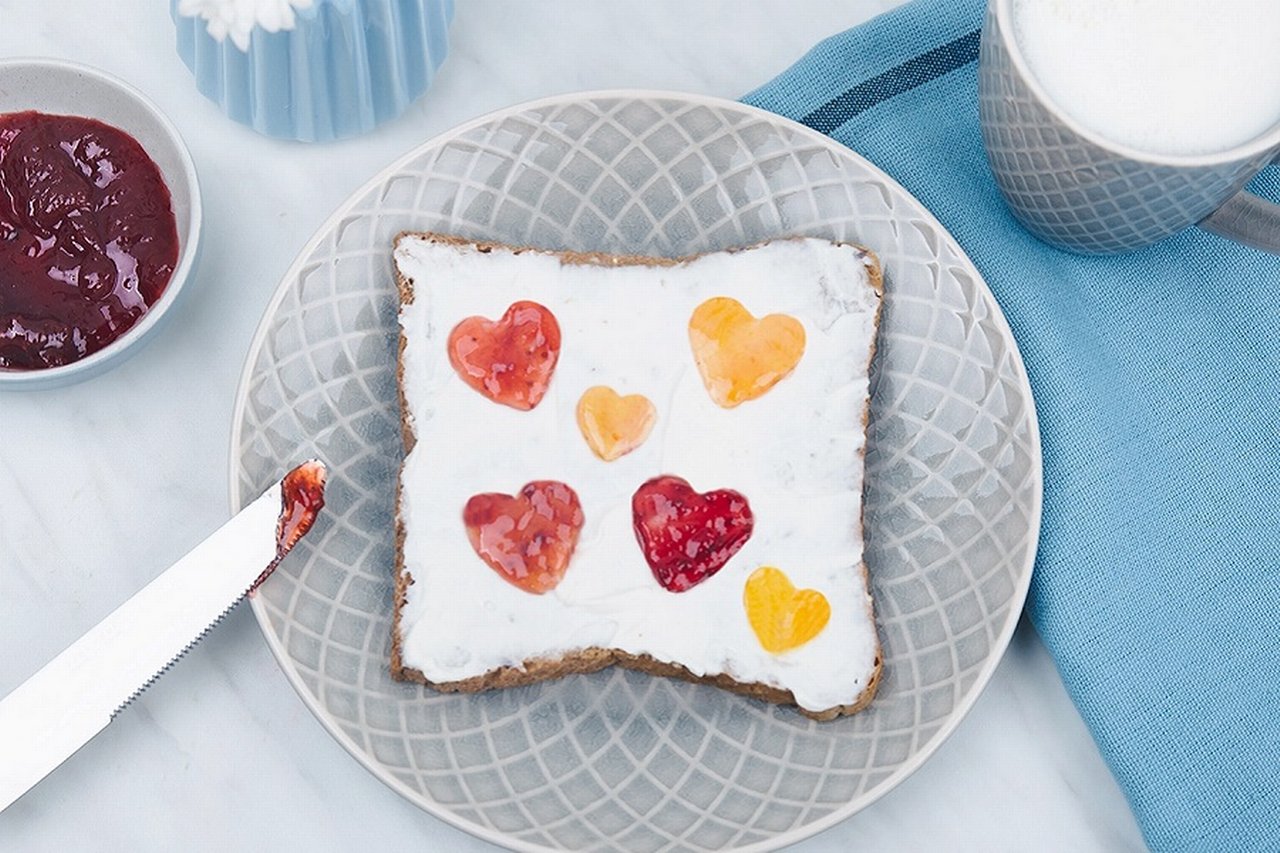
About Schwartauer Werke
Founded in 1899, Schwartauer Werke is headquartered in Bad Schwartau in northern Germany. With over 1,000 employees across three production sites, the company manufactures fruit-based products and snacks for retail and food services.
Sustainability is a core value at Schwartauer Werke: “We believe that everyone can and should make a difference – in small ways and big ones.”

Maike Tippmann
... can almost taste the strawberries when she hears the name "Schwartau" and thinks of the jams they make. She is concerned about the obvious decline in the number of bees at work in her own garden, which is why she was thrilled to learn about Schwartau's commitment to regenerative farming.
Recommended content
Entrepreneurial Success | Video & Photo Story
Acesur: When Innovation is your DNA Acesur: When innovation is your DNA
Artificial intelligence, data-based decisions, biodegradable packaging: How a traditional Spanish family business is revolutionising the olive oil business.
Entrepreneurial Success | Story
Grows even in the desert Grows even in the desert
Veganz founder Jan Bredack is on a mission to feed the world by producing plant-based protein on an industrial scale.
This vision will become reality with OrbiFarm®. Here’s how.
Entrepreneurial Success | Photo Story
“First, we had to explain to people that this is food" “First, we had to explain to people that this is food”
When Noel Bollmann and Benjamin Kremer founded yfood in 2017 they had to explain their signature product a lot. Noel Bollmann about future plans and the expansion to the US.

